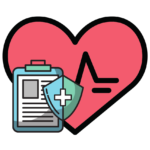Physical Address
304 North Cardinal St.
Dorchester Center, MA 02124

In a Cardiac arrest, the heart rate stops working suddenly, which means a stoppage of heart action. This acute situation can lead to sudden cardiac death, a person may even die. In the heart, there is an electrical system that controls the rhythm of the heartbeat. There is a sudden loss of heartbeat, difficulty in breathing, and loss of consciousness in a cardiac arrest. The heart depends on an intricate electrical system to monitor its rhythmic beating, and when this system falters, a cardiac arrest can occur. This article explains the causes, symptoms, treatments, and precautions associated with cardiac arrest.

What is Cardiac arrest?
Cardiac arrest is an illness that occurs unexpectedly without any signal. This is a different type of heart disease in which the heart suddenly stops functioning, cutting off blood flow to the brain and other organs. Suffocation becomes the cause of death. It is totally the opposite of a heart attack. The main reason for cardiac arrest is still unknown. Mostly it happens because of electrical disturbances within the heart which cause arrhythmia- a condition that affects the pumping action of the heart leading to a person’s death by loss of blood flow to the brain and other organs.
Causes of Cardiac Arrest
The primary cause of cardiac arrest is an irregular heartbeat called arrhythmia. It occurs due to disturbances in the electrical system of the heart.
There are several types of disturbances in the heart rhythm, including asystole, in this case, there is no electrical activity in the heart which means the heart does not beat. In ventricular fibrillation, there is irregular electrical activity in the heart. Because of very little heartbeat, the heart cannot pump blood effectively. The person’s heart stops completely or heart rate drops so that person cannot sustain for a long time. Furthermore, there are some other risk factors such as elevated cholesterol levels, high blood pressure, obesity, diabetes, smoking, a history of heart attack, and a family history of heart disease that can enhance the likelihood of experiencing cardiac arrest.
Symptoms of Cardiac Arrest
Cardiac arrest symptoms occur without any indication, such as abrupt collapse, fainting, breathlessness, dizziness, heart palpitations, chest pain or discomfort, restlessness, and the absence of a pulse.
Treatment for Cardiac Arrest:
Immediate action is vitally important in the event of cardiac arrest:
Cardiopulmonary Resuscitation (CPR): Immediate CPR is crucial for treating sudden cardiac arrest. CPR assists in maintaining the blood flow to the vital organs of the body until advanced emergency care is accessible.
Emergency Medical Intervention: Making an ambulance call is paramount. Defibrillation is often used to restore normal heart rhythm.
Medication: Post-recovery, the Cardiologist may recommend a prescription to minimize the risk of another cardiac arrest.
Surgical Interventions: In some cases, doctors recommend surgical procedures like bypass surgery, corrective heart surgery, coronary angioplasty, etc.
Preventing Cardiac Arrest
To reduce the risk of cardiac arrest, a person should get regular cardiac exams.
Regular Heart Check-ups: Engage yourself in routine heart examinations.
Healthy Lifestyle: Maintain a balanced diet, exercise daily, maintain a healthy weight, aim to avoid stressful situations, keep your BP under control, monitor your cholesterol levels, and keep diabetes in check.
To sum up, understanding the causes, awareness of the symptoms, and adopting preventative measures are important in the effort to battle against the threat of cardiac arrest. Early intervention through CPR and advanced medical care significantly improves the chances of survival and recovery.


